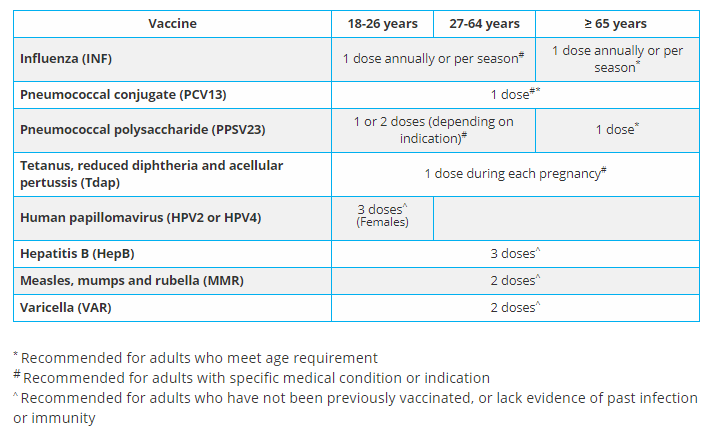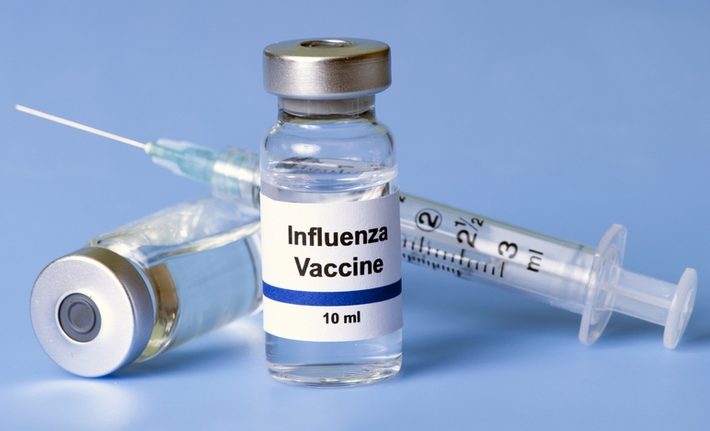Truth be told, I used to think that the influenza vaccine is a travel vaccine. Dr Leong Choon Kit from Mission Medical Clinic identifies that the idea is a common misconception among people.
“So they may assume that since they are not travelling, the influenza (jab) is not needed,” he said.
Decline in people getting the flu vaccine
Doctors revealed the drop in the number of people getting the flu jab. They attributed it to the circuit breaker period and a general reluctance to visit clinics during the pandemic.
Dr Leong shared that the Ministry of Health (MOH) had previously advised against going to clinics for elective vaccinations. In addition to that, many people are trying their best not to visit clinics at the moment.
“I think most people are distracted by the COVID-19 outbreak,” he said.
A dose of influenza vaccination is recommended per year

Image Credits: MOH
As advised under the MOH’s National Adult Immunisation Schedule, one dose of influenza vaccination is recommended annually or per flu season.
“This is for optimal protection against circulating influenza viruses, especially when the symptoms of influenza and COVID-19 are similar and not easily distinguishable,” said MOH.
Flu season usually highest at the end of the year
“There will be a challenge to distinguish flu symptoms from COVID symptoms as both diseases circulate simultaneously. Getting flu shots will hopefully reduce the background noise,” Farrer Park Hospital’s infectious diseases specialist Dr Lam Mun San said.
Dr Leong adds that it is more important for the population to be vaccinated against influenza now. Compared to the other years, there’s an even more urgent need this year.
Getting a flu vaccination may help reduce the strain on healthcare facilities

Image Credits: The Straits Times
Dr Barnaby Young from the National Centre for Infectious Diseases’ (NCID) advises us to follow MOH’s advice on vaccinations.
“Vaccinations are safe and effective at preventing influenza infections, they can reduce the strain on clinics and hospitals during flu season, and will protect vulnerable people in the community.”
NCID’s clinical director Dr Shawn Vasoo also explained from a public health and resource perspective. Minimizing influenza rates or preventing it may put less strain on testing resources and better use of hospitalisations or isolation beds for patients who might need it more.
Dr Vasoo also shared that with the easing of borders and social restrictions in the community, our country may see a rise in acute respiratory infections and COVID-19 cases.
“Getting an influenza jab can help to prevent and decrease the circulation, morbidity and consequences from both diseases and is therefore a useful tool, both at a public health and at an individual level,” he added.

